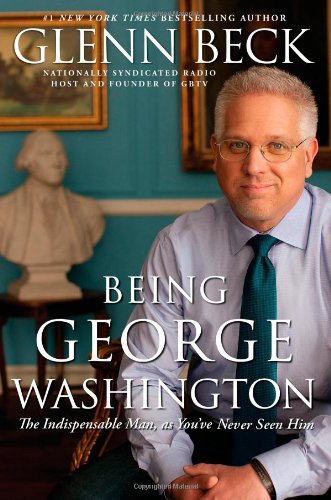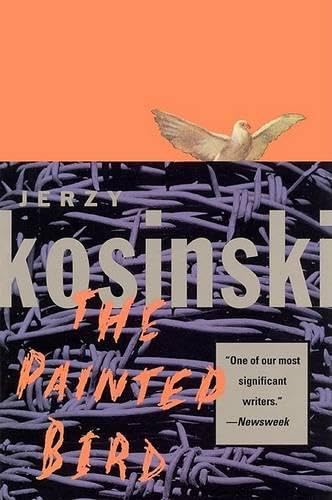 Feeling overwhelmed by a profound sense of inadequacy brought on by the growing list of “Before You Die” lists, I recently hunted down a book that I suspect may have started it all – one that, at least, surely inspired the authors of books like A Lifetime Reading Plan and Book Lust.
Feeling overwhelmed by a profound sense of inadequacy brought on by the growing list of “Before You Die” lists, I recently hunted down a book that I suspect may have started it all – one that, at least, surely inspired the authors of books like A Lifetime Reading Plan and Book Lust.
The List of Books: A library of over 3,000 works was published in 1981 by Frederic Raphael and Kenneth McLeish. It’s a slim volume with an unusual page configuration — more than twice as tall as it is wide. In a scant 159 pages, Raphael and McLeish list more than 3,000 titles grouped into 44 categories, mostly non-fiction, with allowances made for drama, poetry, and novels. The intent, in their own words, was to design “an imaginary library … in which a reasonably literate person can hope to find both instruction and inspiration, art and amusement.”
Back in the 1980s, I borrowed this book from the library a lot. I always meant to buy it. For whatever reason, the book never saw a third printing, so it disappeared from brick and mortar bookstores (dozens are available on Amazon for a penny) and I forgot about it. It last rolled off the press in 1988 — so long ago that one could read the “newest” titles recommended by the authors and likely not find a single reference to the Internet.
What sets The List apart from its younger cousins are the thirteen Michelin Guide-type symbols (a magnifying glass, an American flag, an armchair, etc.) that Raphael and McLeish used to flag titles as (for example) a “major masterpiece,” a “seminal work that changed our thinking,” “a particular pleasure to read,” and so on. Some are “recommended for beginners on the subject” while more advanced volumes are deemed “difficult, worth preserving.”
These symbols of literary merit are liberally scattered throughout. Many titles have none; some boast as many as half a dozen — like Plato’s Phaedo, which is: 1) a particular pleasure to read, 2) a seminal book that changed our thinking, 3) a standard work on the subject, 4) recommended for beginners in the subject, 5) a major masterpiece that is 6) not to be missed.
As a teenager, the titles that most interested me were those flagged by a magnifying glass or an asterisk, with the former denoting “difficult; worth preserving” and the latter “infuriating; possibly illuminating.” This second category was particularly exciting. I figured an “infuriating” book demanded more of a reader than one that was merely “difficult.” A book so supremely difficult that it was … infuriating! Yet, with sufficient intellectual energy brought to bear, the serious reader might crack the code and bask in the glow of illumination. Honestly, these were not books I was likely to read, but they were books I wanted to know about.
Recently, I found The List of Books at the library — the same library, in fact, where I first encountered it a quarter of a century ago, raising the delightful possibility that it was the same copy that I held in my hands so long ago. Once again, I drifted toward “difficult” and “infuriating,” curious to know how decades had colored my perceptions and whether my original interpretation was correct.
Sixty-one titles, clustered mostly in history and politics, are ranked as “infuriating.” The subjectivity of the entire enterprise became clear, and I found myself slipping into the same indignant space late 20th century critics occupied when demanded to know why this or that title was excluded from a “Best Books of the 20th Century” list. I haven’t actually read Lewis Morgan’s Ancient Society, for example, but I know enough about it (and that counts for something, doesn’t it?) to know that excluding it from the list is an abomination. Questions abound. How can Peter Brooks’s 1968 treatise on dramatic theory be termed a seminal work that is both difficult and recommended for beginners? Why in the world is Ulysses not flagged as difficult?
 Initially, my first hunch seemed correct. Reviewing these 61 titles, one gets the impression that Raphael and McLeish were highlighting books they believed were extremely difficult to read. Studies in Ethnomethodology, after all, can’t be a book you fly through. And the reader comments section on Amazon.com for Roland Barthes’s Writing Degree Zero includes a telling remark: Writing Degree Zero is one of those 100-page books you need a 500-page book to really understand,” writes Mark Nadja. “You know you’re in trouble when, like me, you find yourself having a problem fully comprehending even the `explanatory’ preface.”
Initially, my first hunch seemed correct. Reviewing these 61 titles, one gets the impression that Raphael and McLeish were highlighting books they believed were extremely difficult to read. Studies in Ethnomethodology, after all, can’t be a book you fly through. And the reader comments section on Amazon.com for Roland Barthes’s Writing Degree Zero includes a telling remark: Writing Degree Zero is one of those 100-page books you need a 500-page book to really understand,” writes Mark Nadja. “You know you’re in trouble when, like me, you find yourself having a problem fully comprehending even the `explanatory’ preface.”
So it makes sense that Marx’s Das Capital is in the club, because — his brilliance notwithstanding — the man’s prose was frequently impregnable. But the exception to that rule complicates matters: The Communist Manifesto, a slim volume that happens to be very readable (thanks largely to the fact, one suspects, that Engels was there from the get-go to help). The Book of Lists would have you believe that it, like Capital, is also infuriating. Why?
At this point, it’s helpful to recall that the root of “infuriate” is fury, which begs the question: Do the bourgeoisie authors consider Marx, regardless of the difficulty of his prose, infuriating because he enraged their mid-19th century cousins? How could anyone have been infuriated by Capital, when few people likely even understood what the hell he was talking about?
The implication here seems to be that “infuriating” means “controversial.” It makes sense, then, to include Richard Aldington’s scandalous biography, Lawrence of Arabia — one so hostile toward its subject that one Amazon reviewer has said reading it is “like standing under a waterfall of venom.” But if Aldington gets to be infuriating for throwing darts at T.E. Lawrence, why does Jerzy Kosinski get a pass for screwing around with the Holocaust? His controversial 1965 novel The Painted Bird appears in the list, but it didn’t make the “infuriating” cut. Curious, since many readers were infuriated to learn that Kosinski may not even have written it.
“Infuriating” clearly works both ways. I cannot believe, for example, that Robert Graves retelling of The Greek Myths is infuriating for any of the same reasons that Jean Paul-Sartre’s Being and Nothingness is. I haven’t read the latter, but I’ll bet it’s a sonofabitch to get through.
Consider William Burroughs’s Naked Lunch (which doesn’t appear in the list), the book Allen Ginsberg famously predicted would “drive everybody mad.” An obvious reference to the fact that the novel is incomprehensible. Naked Lunch is a notoriously difficult text – one might say infuriatingly so. I actually have read it, but it didn’t make me angry. I can understand, however, why June and Ward Cleaver would have been appalled if they’d found a dog-eared copy and a flashlight stuffed under Beaver’s pillow.
It seems to me that if we’re considering a book’s capacity to illicit genuine fury, it cannot merely ruffle feathers within a community of specialists. Sigfried Gideon’s Space, Time and Architecture: The Growth of a New Tradition is deemed “infuriating,” but who, other than architects, becomes infuriated by a 960-page book about architecture? This seems insufficient. In my lifetime, the publication of a book that infuriates the general population has been a rare event. The Satanic Verses comes to mind, although that presents a different problem: The vast majority of those angered by Salman Rushdie’s book never actually read it.
Isn’t that the case, really, with most “infuriating” books? How many people actually finished (or even started) American Psycho? I’m no different when it comes to judging books by the covers. While perusing the history shelf at a bookstore recently, I saw a book called Being George Washington, by Glenn Beck, and immediately felt a sensation that approximated fury. The history shelf! A low-grade fury, to be sure; it wasn’t what I’d feel if someone harmed my child. But having observed the Beck phenomenon closely over the years, I feel justified saying that the man has no more business writing authoritatively and insightfully about George Washington than I do writing a book called Space, Time and Architecture. And yet, I never picked it up; its very existence enrages me.
But I’m neglecting the rest of the phrase denoted by an asterisk: These books are not only infuriating, but “possibly illuminating.” What does that mean? Possibly illuminating? The author may sound like he’s on crack, but we concede he may be on to something! Or: If you’re not a complete imbecile, you may learn something by reading this book.
This is a minor matter, to be sure. One reader’s “infuriating” is another’s “exhilarating.” The bigger problem with The List of Books, of course, is that it’s horribly outdated. It has a science and technology section devoid of Stephen Hawking, Richard Dawkins, Ernst Mayer, David Quammen, Brian Greene, Stephen Jay Gould or even Carl Sagan. A current “paranormal and occult” section without Whitley Strieber’s Communion books is like a list of best fantasy novels that excludes The Lord of the Rings. Speaking of fantasy, a similar problem looms over in children’s literature: No Harry Potter. Also, since 1981, graphic novels have evolved light years beyond the cheap paper they were once printed on. Consequently, those relying on The List of Books to decide which titles to scrape together in anticipation of the Zombie Apocalypse would remain oblivious to the work of Art Spiegelman, Joe Sacco, Neil Gaiman, and Craig Thompson. Not to mention The Walking Dead creator Robert Kirkman. Which might come in handy.
Three decades on, The List of Books highlights better than its many predecessors the ephemeral quality of all lists of books and other artistic works. It’s a simple – and perhaps even instinctive – matter to argue about or even dismiss a list of the “best” (although perhaps not “favorite”) books because of this or that inclusion/exclusion. What, after all, is wrong with debate? Ultimately, the lesson we ought to take from Raphael and McLeish is the importance of embracing our Amazon- and Goodreads- and Riffle-fed obsession with listography. The sheer number and availability of our book lists may be infuriating, but they are often a pleasure to read. And even possibly illuminating.
















